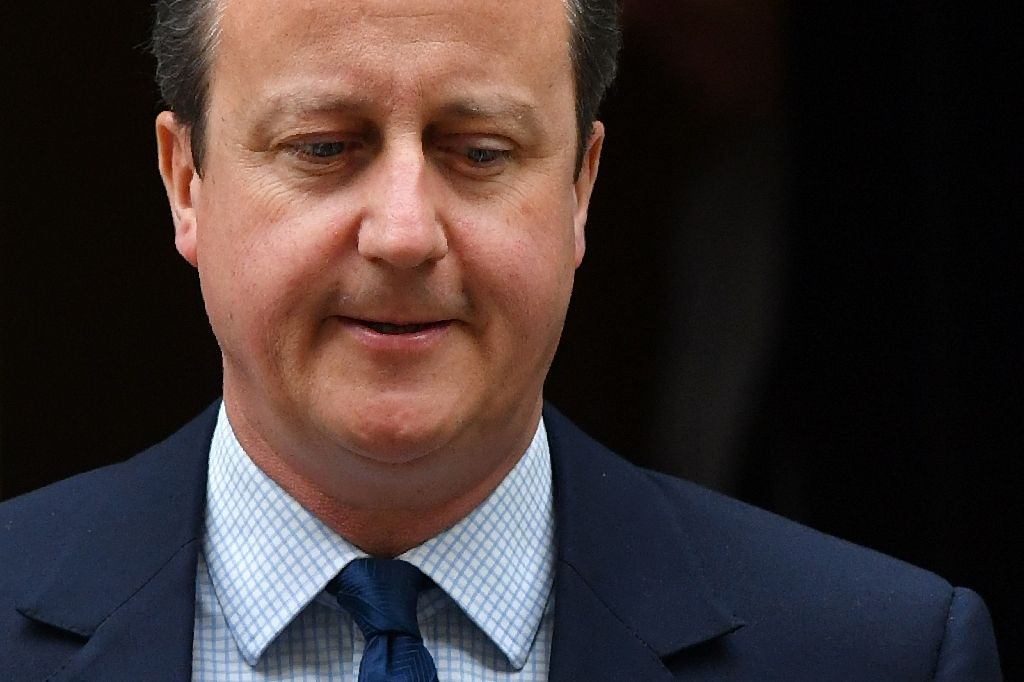
The ruling Conservatives fired the gun Wednesday on the race to pick Britain's next premier after a shock Brexit vote, as departing David Cameron turned his fire on beleaguered opposition leader Jeremy Corbyn.
Ex-London mayor and anti-EU campaigner Boris Johnson is tipped as a favourite to take over from Cameron on September 9 while interior minister Theresa May, who wanted to stay in the bloc, is another frontrunner.
Despite last week's surprise vote, it was not Cameron -- who is quitting after leading the unsuccessful "Remain" campaign -- but Corbyn who faced the roughest ride at parliament's weekly Prime Minister's Questions session.
Corbyn has vowed to stay in his job despite losing a confidence vote of MPs in his Labour party, dozens of whom have quit his frontbench team in recent days.
"It might be in my party's interests for him to sit there, it's not in the national interests and I would say, for heaven's sake man, go," Cameron told the veteran socialist, to loud cheers from MPs.
Even Corbyn's deputy Tom Watson has said he should quit, predicting there would be a formal leadership contest.
"I'd like to apologise to the country for the mess that they're seeing," Watson told the BBC, calling the situation "a great tragedy".
Corbyn has faced months of criticism for lacklustre leadership after being selected by the party's grassroots last year which came to a head after he was accused of not campaigning enough keep Britain in the European Union.
- MPs backing Johnson -
First to throw his hat into the ring for Cameron's job was work and pensions minister Stephen Crabb, a virtual unknown to the British public, whose campaign is expected to stress his working class credentials in a party often seen as elitist.
The 43-year-old urged the Conservatives to "get past this Boris/stop Boris dichotomy", in reference to the divisive Johnson.
The party officially opened nominations at 5:00 pm (1600 GMT). Johnson and May are expected to announce their bids Thursday morning, before nominations close at noon.
The new Conservative leader, who will be chosen by a postal ballot of party members currently numbering around 150,000, is expected to be announced on September 9.
He or she will also become prime minister but may call an early general election.
Bookmakers have Johnson as a slight favourite over May and The Sun newspaper reported Wednesday that he had already secured the backing of 100 of the 330 Tory MPs who will whittle down the field to two nominees.
The ConservativeHome blog surveyed more than 1,300 members and found the slimmest of leads for May, mirroring the results of a YouGov poll published Tuesday.
Pro-EU finance minister George Osborne, long seen as a possible Cameron successor, has ruled himself out.
Critics question whether the "Leave" camp -- and Johnson in particular -- has any idea how to manage the unprecedented situation left by last week's vote.
"He has still to offer anything like a concrete plan on how he would negotiate the post-Brexit future," wrote former BBC political editor Nick Robinson.
- 'Worst crisis' in Labour history -
The political chaos was not confined to the ruling party, with opposition Labour leader Corbyn battling against a huge majority of his own MPs.
Corbyn was defeated by 172 to 40 in a non-binding no-confidence vote held by Labour lawmakers late Tuesday, and speculation was mounting that a candidate would come forward and challenge him.
Media reports suggested that his former business spokeswoman Angela Eagle could be preparing a bid.
A fierce battle is looming over who owns the soul of the party -- parliamentarians or members.
Former foreign minister Jack Straw said Labour faced an "apocalypse" if an election was held with Corbyn still in office.
"It's probably the worst crisis since Labour's formation," he told Sky News.
The leadership ructions of both parties dominated the front pages of Wednesday's newspapers, with the Metro calling on Corbyn to "Please Jez go!" and The Sun declaring it "Boris day".afp



































